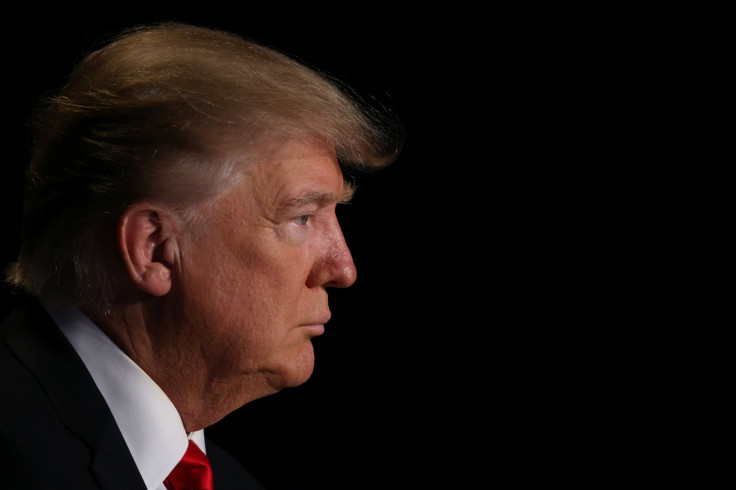Is Donald Trump A Good President? Latest Polls, Approval Ratings Of President And Executive Orders Vary Based On Polling Methods

As a former reality TV show host, President Donald Trump has long been vocally concerned with approval, crowd sizes and ratings—including those of the current season of said TV show, now presided over by actor and former California Governor Arnold Schwarzenegger but apparently executive-produced by Trump.
But in the wake of his whirlwind of executive orders, polls showing voters’ opinions on those orders and Trump himself appeared to vary widely and often starkly contradicted one another. Read on for American's variegated opinions of how the new president is doing so far.
Gallup approval rating polls
Trump’s approval rating sat at 43 percent for the week ending Feb. 5, according to Gallup, with 86 percent of Republicans, 41 percent of independents and 8 percent of Democrats approving of him over the same period. Approval ratings of people with all three political leanings had dropped from the previous week.
With an average of 44 percent for the time he’s spent in office so far, Trump is far below former presidents in terms of early approval rating, according to Gallup. Since the election of Dwight Eisenhower, past presidents have averaged an approval rating of 63 percent for their first three months in office. Polls by the Economist/YouGov, CNN/ORC International, CBS News and Public Policy Polling exhibited similar results.
Rasmussen Reports approval rating poll
A notable outlier in the litany of outlets tracking voters’ attitudes toward their new president, Rasmussen pegged his approval rating at 53 percent as of Friday, and has never shown it to be lower than 51 percent.
As Politico noted, the anomaly may be attributed to the polling methods—such as via phone versus online—as well as sampling, and the phrasing of questionnaires.
Emerson College poll on voter trust
Trump quickly tweeted the result of a Wednesday survey indicating that 49 percent of voters considered his administration truthful, compared to 48 percent who didn’t. As for the media, on the other hand, 53 percent of registered voters said they didn’t trust news organizations, over 39 percent who found them truthful.
Like Trump’s approval rating, there was a significant partisan split, with 89 percent of Republicans saying they trusted Trump and 91 percent finding the media untrustworthy. Nearly 70 percent of Democrats found the media truthful, while 77 percent found Trump’s government untrustworthy. Among independents, the Trump administration was considered untruthful by 42 percent of respondents, while the media was not trusted by 45 percent.
Quinnipiac University poll on the immigration ban
Whether they trust him or not, Quinnipiac’s survey on approval of Trump’s executive order barring citizens from seven majority-Muslim countries and refugees from entering the U.S. indicated general opposition from voters. More specifically, 51 percent were against his 90-day ban on travel from Iraq, Iran, Syria, Libya, Somalia, Sudan and Yemen, compared to 46 percent in favor. Sixty percent of respondents opposed the order’s suspension of refugees for 120 days, while 37 percent approved. On Trump’s indefinite ban of immigration of asylum-seekers from war-torn Syria, 70 percent of respondents were in opposition and 26 percent were in favor. The same percentage, the poll found, said they believed the Muslim religion “encourages violence.”
Morning Consult/Politico poll on the immigration ban
Another one Trump shared on his personal account and shied away from deeming “fake news,” this Morning Consult/Politico survey contrasted sharply with Quinnipiac’s results, despite their same-day release. The former said that 55 percent of respondents “strongly” or “somewhat” approved of the action met with disapproval in the Quinnipiac poll, while 38 percent “strongly” or “somewhat” disapproved.
In a daily newsletter, CNN’s Brian Stelter pointed out that the Morning Consult/Politico poll, along with the Emerson College poll, didn’t meet CNN’s standards, as the only respondents allowed to participate were those who’d volunteered to take surveys, and therefore may be self-selecting. Citing the broadcaster’s polling director, he added that the Emerson College survey had a relatively tiny sample of 617 respondents and was conducted exclusively via landline phones.
© Copyright IBTimes 2024. All rights reserved.






















